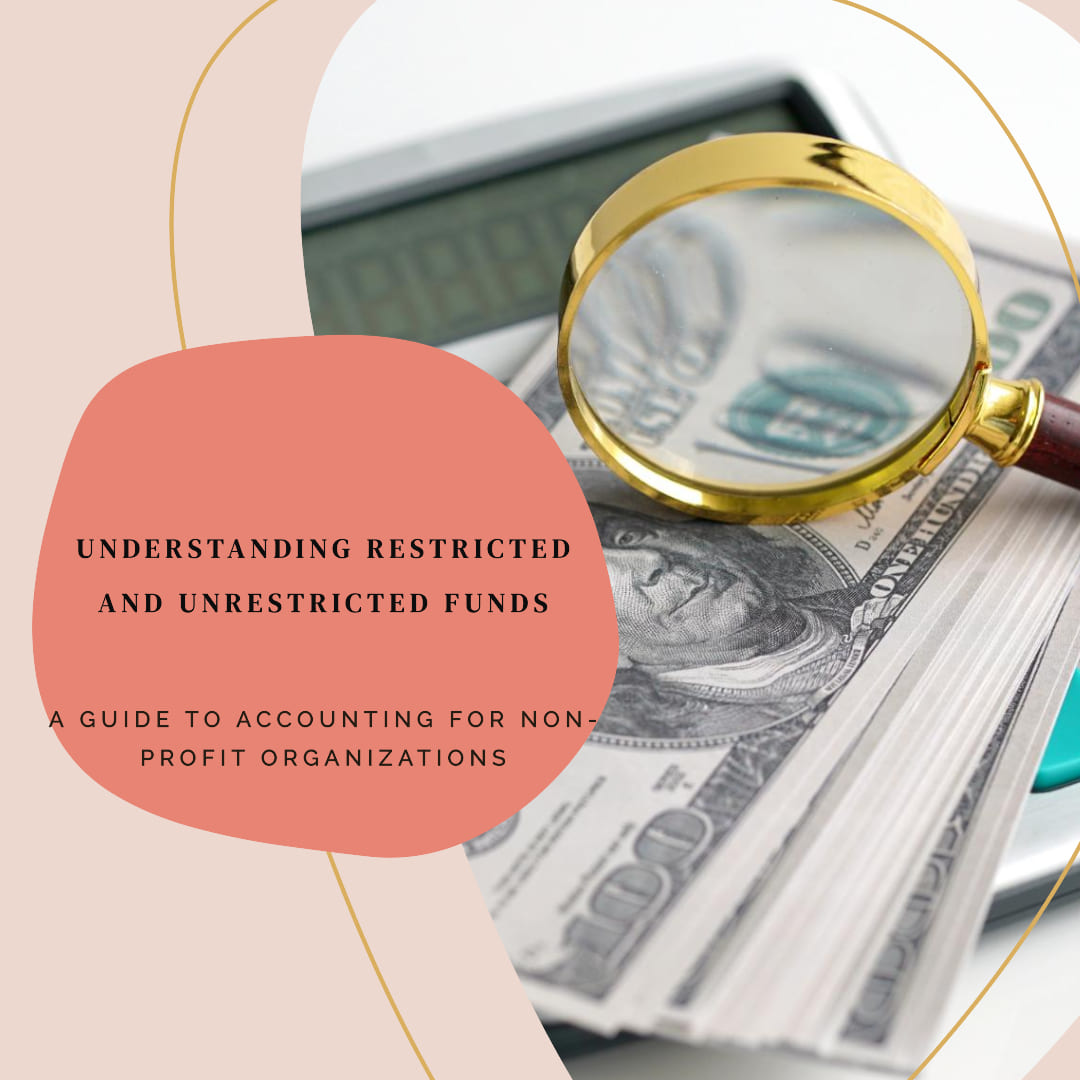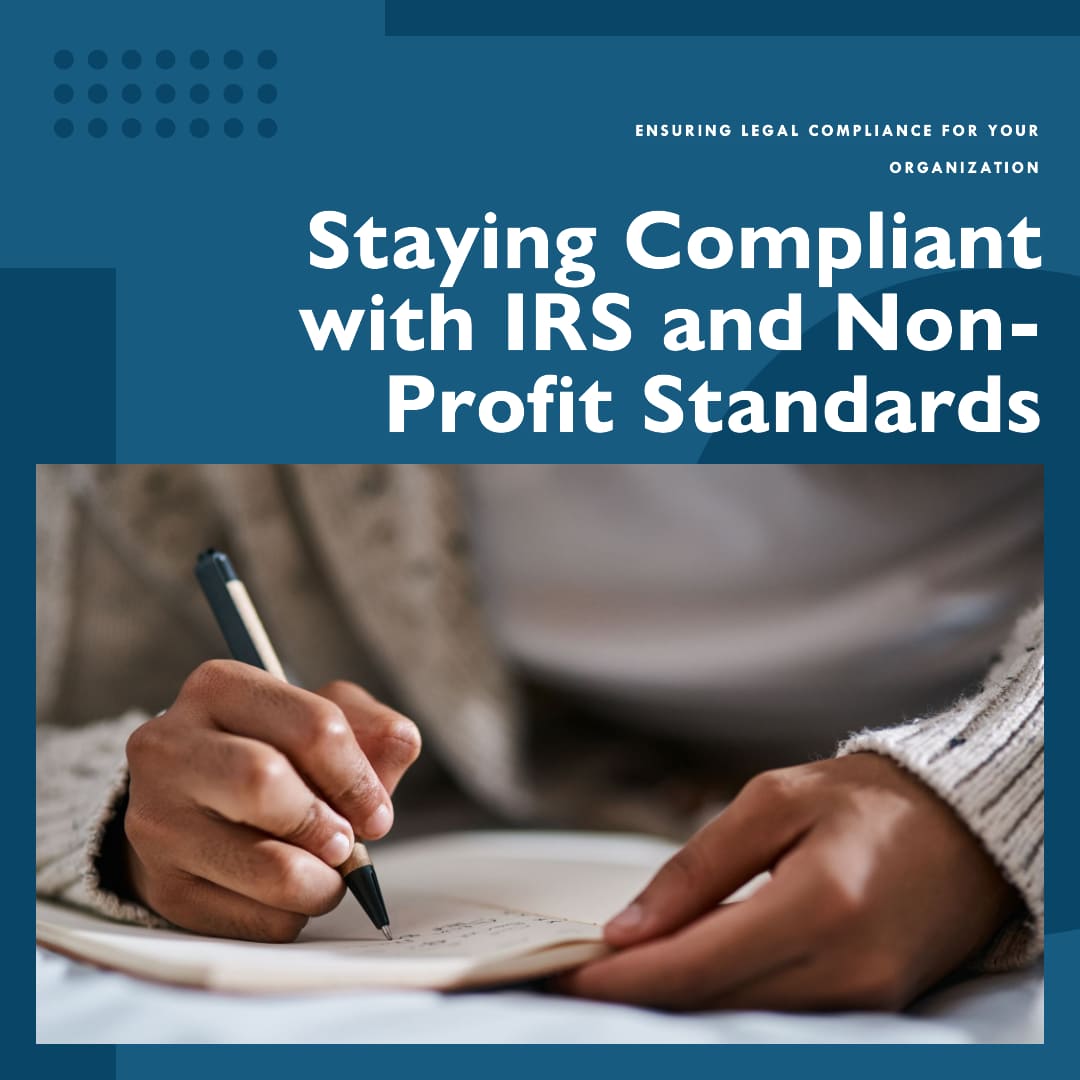In context with Bookkeeping for Non-Profit Organizations, Bookkeeping is essential for non-profit organizations to effectively manage their financial resources, track the use of funds, and ensure compliance with legal and regulatory requirements. Effective bookkeeping practices can help non-profit organizations maintain financial stability, attract donors and grants, and demonstrate transparency and accountability in their financial management. With accurate and up-to-date financial records, non-profit organizations can make informed decisions about their operations, manage cash flow effectively, and demonstrate their impact to stakeholders. Bookkeeping also plays a critical role in preparing financial statements, annual audits, and tax filings, which are required by regulatory bodies and funders. Non-profit organizations must maintain strong bookkeeping practices to ensure the long-term success and sustainability of their mission.

Managing Grants and Donations: Challenges and Best Practices
In context with Bookkeeping for Non-Profit Organizations, Managing grants and donations is a crucial aspect of bookkeeping for non-profit organizations. Here are some common challenges and best practices for managing grants and donations:
Challenges:
- Keeping track of grant and donation requirements
- Ensuring that funds are used appropriately and according to grant or donor restrictions
- Managing multiple grants and donations simultaneously
- Tracking and reporting on the use of funds
- Meeting reporting requirements and deadlines
Best Practices:
- Develop a Grant and Donation Tracking System: Create a system to track grants and donations, including the amount, purpose, and restrictions of each donation or grant.
- Use Fund Accounting: Implement fund accounting, which allows non-profit organizations to track revenue and expenses separately for different funds or grants, ensuring that funds are used according to restrictions.
- Maintain Complete and Accurate Records: Keep complete and accurate records of all financial transactions related to grants and donations, including receipts, invoices, and other supporting documents.
- Create and Monitor Budgets: Create budgets for each grant or donation, and monitor expenses closely to ensure that funds are used appropriately.
- Communicate with Donors and Grantors: Maintain open communication with donors and grantors, providing regular updates on how their funds are being used and the impact they are having.
- Train Staff and Volunteers: Train staff and volunteers on the proper use and management of grant and donation funds, and ensure that everyone is aware of grant or donor restrictions and requirements.
In context with Bookkeeping for Non-Profit Organizations, By implementing these best practices, non-profit organizations can effectively manage grants and donations, ensure compliance with restrictions and regulations, and provide accurate and transparent reporting to donors and grantors.
Budgeting and Financial Reporting for Non-Profit Organizations
In context with Bookkeeping for Non-Profit Organizations, Budgeting and financial reporting are important aspects of bookkeeping for non-profit organizations. Here are some key considerations for budgeting and financial reporting:
- Create a Detailed Budget: Develop a detailed budget for the upcoming fiscal year, including projected revenues and expenses. This budget should take into account all sources of revenue, including grants and donations, as well as expenses such as salaries, rent, and supplies.
- Use Fund Accounting: Implement fund accounting, which allows non-profit organizations to track revenue and expenses separately for different funds or grants. This helps to ensure that funds are used appropriately and in compliance with donor or grant restrictions.
- Monitor Cash Flow: Monitor cash flow regularly to ensure that the organization has sufficient funds to meet its obligations and achieve its goals. Cash flow reports should be generated and reviewed regularly to identify any potential issues or shortfalls.
- Prepare Regular Financial Statements: Prepare regular financial statements, including income statements, balance sheets, and cash flow statements. These statements should be reviewed by the board of directors and made available to donors, funders, and other stakeholders.
- Maintain Accurate Records: Keep accurate records of all financial transactions, including receipts, invoices, and other supporting documents. This will help to ensure compliance with legal and regulatory requirements and make financial reporting easier and more accurate.
- Conduct Regular Financial Reviews: Conduct regular financial reviews to ensure that the organization’s financial management practices are effective and in compliance with best practices and regulations.
In context with Bookkeeping for Non-Profit Organizations, By following these best practices, non-profit organizations can effectively manage their finances, ensure compliance with regulations, and provide accurate and transparent financial reporting to stakeholders.

Accounting for Restricted and Unrestricted Funds In context with Bookkeeping for Non-Profit Organizations
In context with Bookkeeping for Non-Profit Organizations, Non-profit organizations often receive donations and grants that come with specific restrictions on how the funds can be used. As such, it is important for non-profit organizations to account for restricted and unrestricted funds separately.
Restricted funds are funds that have been designated by donors or grantors for a specific purpose or project. These funds may only be used for the designated purpose, and the organization must maintain documentation to ensure that the funds are used appropriately. Examples of restricted funds might include a grant to support a specific program or funds donated to support a capital campaign.
In context with Bookkeeping for Non-Profit Organizations, Unrestricted funds, on the other hand, are funds that can be used for any purpose deemed appropriate by the organization’s leadership. Unrestricted funds are often used to cover general operating expenses, such as salaries, rent, and supplies.
To account for restricted and unrestricted funds, non-profit organizations should implement fund accounting practices. Fund accounting involves tracking financial transactions separately for each fund or program. This allows the organization to ensure that restricted funds are used only for the designated purpose and that there is no commingling of funds.
In addition to implementing fund accounting, non-profit organizations should also create separate financial statements for restricted and unrestricted funds. This helps to ensure that the organization’s financial statements accurately reflect the use of restricted funds and can help to ensure compliance with regulatory requirements.
In context with Bookkeeping for Non-Profit Organizations, By accounting for restricted and unrestricted funds separately, non-profit organizations can ensure that funds are used appropriately and that their financial reporting accurately reflects the use of donor and grantor funds.
Preparing for Annual Audits and Reviews
In context with Bookkeeping for Non-Profit Organizations, Preparing for annual audits and reviews is an important part of bookkeeping for non-profit organizations. Here are some key considerations to help ensure a smooth audit or review process:
- Keep Accurate Records: Accurate record-keeping is essential for a successful audit or review. Non-profit organizations should maintain detailed records of all financial transactions, including receipts, invoices, and bank statements. These records should be organized and easily accessible to auditors or reviewers.
- Understand Audit Requirements: Non-profit organizations should understand the audit or review requirements for their organization. Depending on the size of the organization and the amount of revenue it generates, different levels of audit or review may be required.
- Review Internal Controls: Internal controls are policies and procedures designed to ensure that financial transactions are accurate and complete. Non-profit organizations should review their internal controls to ensure that they are effective and in compliance with best practices and regulations.
- Review Compliance: Non-profit organizations should review their compliance with regulatory requirements, such as tax filings, and ensure that all necessary filings have been submitted.
- Prepare Documentation: Non-profit organizations should prepare documentation to support their financial statements, such as reconciliations, schedules, and work papers. This documentation should be reviewed and organized to facilitate the audit or review process.
- Communicate with Auditors/Reviewers: Non-profit organizations should communicate with their auditors or reviewers throughout the process to ensure that all necessary information is provided and that the process runs smoothly.
In context with Bookkeeping for Non-Profit Organizations, By following these best practices, non-profit organizations can prepare for annual audits or reviews and ensure that their financial statements are accurate and compliant with regulatory requirements.

Staying Compliant with IRS Regulations and Non-Profit Standards.
In context with Bookkeeping for Non-Profit Organizations, Staying compliant with IRS regulations and non-profit standards is critical for non-profit organizations to maintain their tax-exempt status and credibility with donors and stakeholders. Here are some key considerations:
- Understand IRS Requirements: Non-profit organizations should understand the IRS requirements for tax-exempt organizations, including the rules for 501(c)(3) organizations. This includes requirements for annual filings, record-keeping, and compliance with the IRS’s public support test.
- Maintain Accurate Records: Non-profit organizations should maintain accurate records of all financial transactions, including receipts, invoices, and bank statements. These records should be organized and easily accessible to demonstrate compliance with IRS regulations and non-profit standards.
- Monitor Financial Activities: Non-profit organizations should monitor their financial activities and ensure that they are in compliance with IRS regulations and non-profit standards. This includes monitoring income and expenses, tracking grants and donations, and ensuring that expenses are reasonable and necessary.
- Develop Policies and Procedures: Non-profit organizations should develop and implement policies and procedures to ensure compliance with IRS regulations and non-profit standards. This includes policies for financial management, conflict of interest, and gift acceptance.
- Train Staff and Board Members: Non-profit organizations should train staff and board members on IRS regulations and non-profit standards to ensure that everyone understands their roles and responsibilities. This can include training on financial management, record-keeping, and compliance requirements.
- Seek Professional Advice: Non-profit organizations should seek professional advice from attorneys, accountants, or other experts to ensure compliance with IRS regulations and non-profit standards. This can include advice on tax filings, financial reporting, and compliance with state and federal regulations.
In context with Bookkeeping for Non-Profit Organizations, By following these key considerations, non-profit organizations can maintain compliance with IRS regulations and non-profit standards, and ensure that they are fulfilling their mission and serving their constituents effectively.



